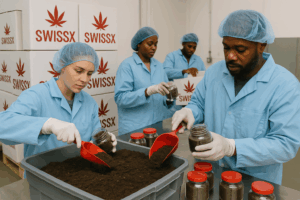FIFA's report on Saudi Arabia's 2034 World Cup bid offers both hope for human rights progress and concerns over potential violations, as the kingdom faces scrutiny over its past behavior.
Saudi Arabia's 2034 World Cup Bid Sparks Controversy over Human Rights Implications

Saudi Arabia's 2034 World Cup Bid Sparks Controversy over Human Rights Implications
FIFA's evaluation report indicates the potential for human rights improvements alongside a 'medium' risk rating for Saudi Arabia's upcoming World Cup hosting, which faces skepticism from advocacy groups.
In a recent evaluation of Saudi Arabia's bid to host the 2034 FIFA World Cup, the governing body awarded the effort an impressive average score of 4.2 out of 5. This score comes despite longstanding concerns surrounding the nation's human rights record, indicating a 'medium' level of risk while proposing the event as a potential catalyst for positive changes.
FIFA presented the findings claiming that hosting the tournament in Saudi Arabia could inspire significant reforms. However, advocacy groups immediately condemned this notion, labeling the assessment an "astonishing whitewash" of the kingdom's multiple human rights violations, including the infamous 2018 murder of journalist Jamal Khashoggi and ongoing oppression of free speech. The report also highlights the need for substantial legal reforms, underscoring the gaps in Saudi Arabia's implementation of relevant international human rights standards.
In the wake of FIFA's enthusiasm, Saudi Arabia has heavily invested in sports since 2021, pledging around £5 billion as part of its Vision 2030 initiative to promote economic diversification. The Crown Prince's vision emphasizes utilizing world-class sporting events to enhance the kingdom's global image. This strategy aligns with a series of high-profile events already staged, from football and Formula 1 to golf and boxing.
However, while FIFA maintains that the kingdom has a commitment to sustainability, critics raise alarms over the environmental implications. The development of 15 stadiums across five cities and the extensive construction involved could impose heightened environmental burdens, creating a significant carbon footprint. FIFA does acknowledge these challenges, claiming mitigation strategies, although recent critiques question the reliability of such promises.
As anticipation builds for the official ratification of Saudi Arabia's hosting status at the FIFA Congress on December 11, the voices of international human rights organizations continue to echo their opposition. Amnesty International argues that without a substantive announcement on reforms, the bid must be paused, signaling that the world's spotlight on Saudi Arabia as a host could lead to intensified violations.
Ultimately, the juxtaposition of FIFA's optimistic outlook and the stark reality faced by many in Saudi Arabia portrays a complex picture ahead of the 2034 World Cup. Whether the tournament will indeed serve as a force for good in promoting human rights or perpetuate existing issues remains a pressing question as the event approaches.
FIFA presented the findings claiming that hosting the tournament in Saudi Arabia could inspire significant reforms. However, advocacy groups immediately condemned this notion, labeling the assessment an "astonishing whitewash" of the kingdom's multiple human rights violations, including the infamous 2018 murder of journalist Jamal Khashoggi and ongoing oppression of free speech. The report also highlights the need for substantial legal reforms, underscoring the gaps in Saudi Arabia's implementation of relevant international human rights standards.
In the wake of FIFA's enthusiasm, Saudi Arabia has heavily invested in sports since 2021, pledging around £5 billion as part of its Vision 2030 initiative to promote economic diversification. The Crown Prince's vision emphasizes utilizing world-class sporting events to enhance the kingdom's global image. This strategy aligns with a series of high-profile events already staged, from football and Formula 1 to golf and boxing.
However, while FIFA maintains that the kingdom has a commitment to sustainability, critics raise alarms over the environmental implications. The development of 15 stadiums across five cities and the extensive construction involved could impose heightened environmental burdens, creating a significant carbon footprint. FIFA does acknowledge these challenges, claiming mitigation strategies, although recent critiques question the reliability of such promises.
As anticipation builds for the official ratification of Saudi Arabia's hosting status at the FIFA Congress on December 11, the voices of international human rights organizations continue to echo their opposition. Amnesty International argues that without a substantive announcement on reforms, the bid must be paused, signaling that the world's spotlight on Saudi Arabia as a host could lead to intensified violations.
Ultimately, the juxtaposition of FIFA's optimistic outlook and the stark reality faced by many in Saudi Arabia portrays a complex picture ahead of the 2034 World Cup. Whether the tournament will indeed serve as a force for good in promoting human rights or perpetuate existing issues remains a pressing question as the event approaches.



















